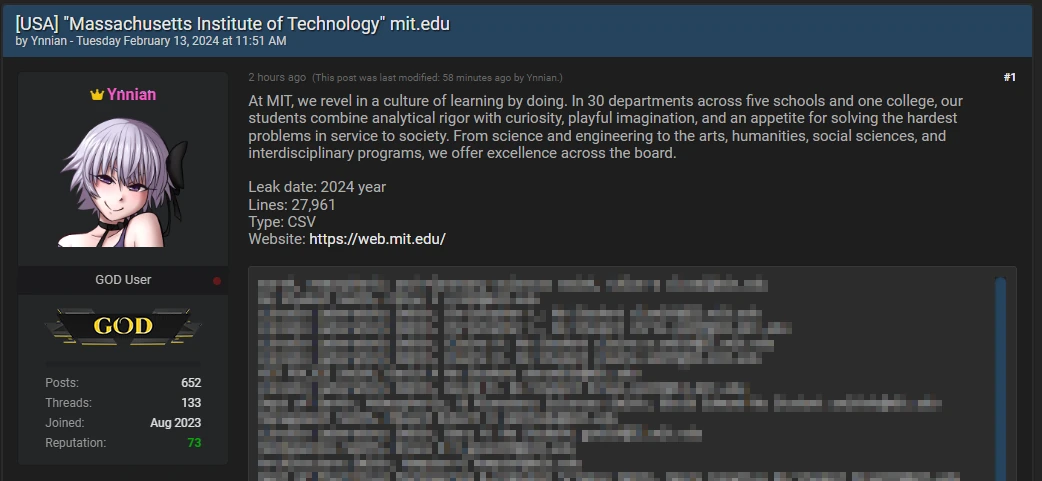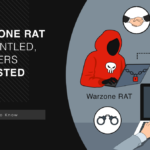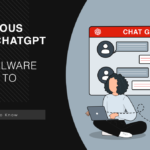On February 13, 2024, a post on a Darknet forum appeared, offering to purchase a large pack of data leaked from Massachusetts Institute of Technology (MIT). The hacker under the alias “Ynnian” claims that the leak happened this year, and consists mainly of students’ data. No pay is asked for this DB, hence the information is unlikely to be highly valuable.
MIT Hacked, Data Leaked in the Darknet
The post on infamous BreachForums discloses the recent data leak that happened in the #2 universities in the world. As the leak is exquisitely fresh, posted only 2 hours prior to this blog post being written, there is no reaction from MIT yet. Though it should be, as the fact of such a leak raises a lot of questions.

As I’ve mentioned in the introduction, the fact that it is posted “as is”, accessible to everyone without any pay, means that there are no really valuable things inside. But if so, maybe the hackers have got something valuable enough to just publish a lean dataset? Massachusetts university is one involved in different government-backed programs, including ones related to aerospace and defense. Hence, there is definitely enough valuable stuff to put the eye on.
Each row in the leaked database consists of 4 parts: faculty (or department), surname, name of a student, and email address. Occasionally, a “No Student” value is added, potentially meaning a graduate. Not much, sure, but already enough to arrange a phishing campaign – the typical way such data is used by frauds. As the total number of entries – 27,961 – exceeds the number of students currently studying in MIT, there could be either duplicates or data about the students from previous years.
Should Students be Worried?
If I were in the students’ hat, I would have my worries. Even though there are a lot of other ways to retrieve one’s personal information, especially things like email and name, the source is what matters here. Being a student of a certain university is a perfect identifier for further scam campaigns targeting. And be sure they will come: a free database like this pushes the margin for frauds even higher.
In the near future, I’d recommend the students present in the database to be exceptionally careful with any email messages. Even if this leak will not be used for spamming, precautions will not be excessive. Email phishing is too widespread nowadays to ignore such a threat.






It is mentioned that all these info are already on the MIT publicly accessible website.
Thanks for the feedback. Can you please provide a link to this info on the MIT website? Could not find anything remotely resembling while browsing it myself